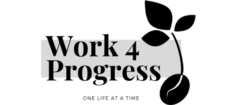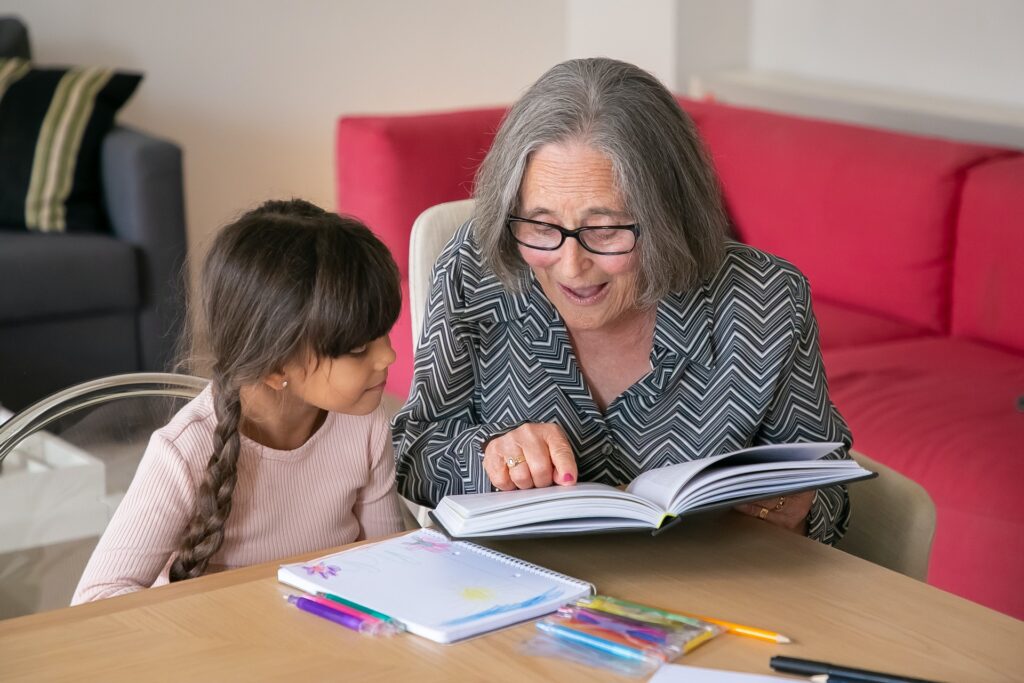As I contemplate the year to come, I reflect on the past. My grandmother is on my mind as I realize she was born today, on New Year’s Eve. I was about my daughter’s age when she fell ill with Alzheimer’s and I got a glimpse into the multidimensional nature of a person… or what makes a person who they are. It was my first initiation into the transient nature of life. It came unexpectedly and early in my development. I notice that her existence in my psyche is in large part her illness and the lessons and changes that took place in my life at that time.
I experienced instability and trauma to some degree at this stage in my life. My grandmother was a schoolteacher who was great with kids having taught elementary education. She was my primary caretaker before and after school while my single mother worked full time. At around 6 or 7 years old I learned that she could not tell me the time when I’d asked. I was learning how to tell time in class and would often ask her what time it was to see if I was correct in my interpretation of our roman numeral clock that sat on our television console. I remember thinking that I was smarter than her in my innocence because I was learning something that was fading so quickly for her. I didn’t yet understand the nature of her illness and I don’t even know if she’d been diagnosed at this time, but there were early signs of confusion that prompted me to notice that something was amiss.
As her disease progressed, more attention went toward her care and less came my way. I observed how someone who was once so self-sufficient, educating herself, earning her own income, managing a household and five children was becoming childlike once again… losing her abilities and becoming dependent on the care of others, primarily my mother and my grandfather. It was confusing, heartbreaking, and difficult for all of us, though I’m sure if she understood what was happening it was even more difficult for her. It was from this that I began to understand the temporary nature of all things. It angered me as I watched one of my primary caretakers become the cared for, seemingly at my expense. It felt isolating and lonely. As an only child, I didn’t have anyone my age who understood what I was going through. Emotional intelligence wasn’t as large of a focus as it is now when I was growing up and I don’t think anyone ever initiated a conversation about what was happening with me, or maybe I’ve forgotten. It’s understandable that in the midst of all of the new challenges they were facing, it slipped their mind.
Watching her slip away encouraged my interest in spirituality, theology, and psychology. It’s probably a large reason why I have such a deep desire to understand what we’re made of… the power of the mind, what lies beyond the mind, and the intricacies of the mind, body, emotional connections. It’s also probably where some of my perfectionist tendencies came from. “Don’t rock the boat, be perfect, be good so that you don’t add to the stress and chaos of the home” is what I think I probably internalized from this situation. This early drive also came with its shadow side, rebellion… one can only have so much “perfection” before they lose it and swing the pendulum strongly in the other direction.
My teenage years were “wild” to say the least. At this point my grandmother was in a nursing home, unable to feed herself, dress, walk, or talk. I sought the attention that I didn’t get a lot of while my grandmother was being cared for at home in drama club and boys at school. I wanted to be noticed, admired and wanted. I wanted belonging and partook in activities that were unsafe and unhealthy to feel it. Like animals, I’m convinced that we seek to get our needs met in many different ways, sometimes unhealthy ways. The goal is to identify the core need and then find healthy and life-affirming ways to meet it. At this age, I didn’t know the difference between life-affirming choices and detrimental ones, only that I had deep needs that weren’t fulfilled and I was going to meet them. Though, if asked to articulate what was bothering me at the time, I couldn’t have explained it in this way. It’s only years later, after much inner work, that I have the clarity to see myself more acutely at this stage in my life.
My rebellion was met with many battles between my mother and me. She couldn’t understand it and believed it had something to do with her being a single parent and my anger directed at not having the love of a father throughout my childhood. Looking back, some of it may have been, but I think it had more to do with having to be self-sufficient at a young age due to other responsibilities that she’d had on her shoulders… work, night school, caring for her mother. When my grandmother went into a nursing home I had a few hours where I was home alone before she and my grandfather got out of work. I spent a lot of time alone, playing in my bedroom with Barbies or Nintendo. Even when people were home, I stayed out of the way since it seemed they were either trying to decompress with television or were too busy for me… cleaning, cooking, paying bills, etc.
This experience has shaped the way I parent. I try to be present and available for my only child. I try to include her in tasks like cleaning the house so that she feels as though she is part of it and not an intrusion or a bother. I attempt to make time to connect with her before bed every night to check in and do something she wants, whether it’s an effort to watch a show she enjoys with her or read together… I try to be fully present and show up for her. Yet, sometimes, I fail… I get annoyed at her dependency at 8 years old because I was a lot more self-sufficient at her age… getting food for myself and parenting myself to some degree. There’s an ever-present trigger there that I need to be aware of. She should be dependent, as I should have been at that age, but grew up a little too soon for lack of supervision and other priorities that took precedence. When triggered I realize there’s still a bit of unhealed resentment hanging out in there and I do my best to make peace with it.
There are positives to this time also. Every shadow has light shining that created it. I’m self-sufficient and independent. I don’t rely on others to do what I can do for myself. I know how to be alone and enjoy my own company. I’m comfortable within myself and within my own mind. I don’t get bored easily as there are always cerebral pursuits available. I love solo activities like reading, writing, listening to music, meditating, yoga, dance, etc. I find joy in the simple pleasures of life, looking out the window and seeing the squirrels scurrying through the yard or the birds flying from branch to branch. I’m self-aware and can recognize when unhealed pieces of me are speaking and desiring some TLC. I’m accountable for my part in conflict and therefore can remedy issues quickly, though sometimes, I have a sense of over-responsibility, which I’m also aware of.
Sometimes, we put a lot of effort and intention into teaching our children the lessons we think are important, though I find the unintentional lessons have much more impact. My grandmother never intended to mold so much of who I’d become, but through her illness and the circumstances that surrounded it, a large part of my identity was born. As Kahlil Gibran wrote:
Your children are not your children.
They are the sons and daughters of Life’s longing for itself.
They come through you but not from you,
And though they are with you yet they belong not to you.
You may give them your love but not your thoughts,
For they have their own thoughts.
You may house their bodies but not their souls,
For their souls dwell in the house of tomorrow, which you cannot visit, not even in your dreams.
You may strive to be like them, but seek not to make them like you.
For life goes not backward nor tarries with yesterday.
You are the bows from which your children as living arrows are sent forth.
The archer sees the mark upon the path of the infinite, and He bends you with His might that His arrows may go swift and far.
Let your bending in the archer’s hand be for gladness;
For even as He loves the arrow that flies, so He loves also the bow that is stable.
We do not have to put so much pressure on ourselves as parents, nor do we have to hold our parents responsible for their misgivings or perceived failures. Life is our teacher and everything that has happened to us is with purpose, molding our identity, our character, teaching us how to be in this world… what serves us and what doesn’t. Much of it is seemingly unintentional, but I believe in the eyes of the divine, there is nothing but intention. I spent a lot of time when I was younger hating her illness and that it took her from us much too early in my opinion, yet now I can see it in some ways as a blessing because some of my best traits were born of it.
Thank you, Grandma, for your sacrifice and for teaching me so much of what I needed to know in life. Thank you for allowing me to learn how temporary it all is so that I may hold each moment loosely with reverence, gratitude, and respect. Thank you for teaching me that it wasn’t all about me. Thank you for showing me the love of family for I got to see the dual nature of love in your illness. Where this is much love, there is also much pain, grief, hurt, and sadness. You were so loved, and your slow departure from this world was taxing on your family yet beautiful at the same time. I saw firsthand the sacrifices that come with love. I saw love in action through the hands-on care you were given and the difficult choices that were made. Thank you for the depth and compassion. I am who I am for having learned some challenging lessons through you and I am eternally grateful for your presence in my life.
What lessons have you learned from someone who never intended to teach you? How have the events of your life molded you? Can you find gratitude for even the difficult events you’ve endured as you move into this new year? Can you take them in as fertilizer to nourish what is to come?

